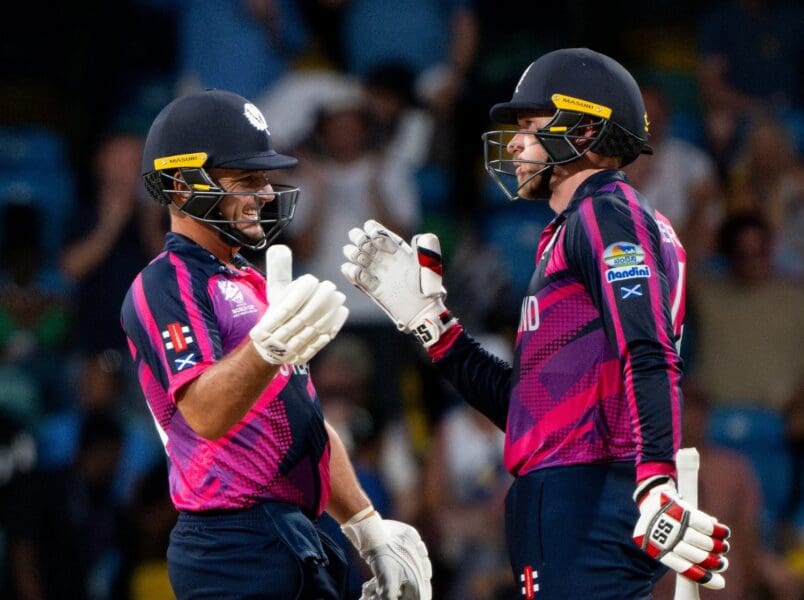 The Olympic games are never free from politics. In 1976, African nations boycotted the Montreal Games objecting to New Zealand’s continued connection to the South African rugby side. Four years later, the USA boycotted the Moscow Olympics in 1980, a favour returned by the USSR four years later.
The Olympic games are never free from politics. In 1976, African nations boycotted the Montreal Games objecting to New Zealand’s continued connection to the South African rugby side. Four years later, the USA boycotted the Moscow Olympics in 1980, a favour returned by the USSR four years later.
The deportation and incarceration of tourists in the USA due to ICE overstepping its lawful authority have already caused global concern about the safety of fans attending next year’s World Cup.
Several European countries have already issued travel warning advisories to its citizens against traveling to the USA while Trump remains in office. These include normally pro-American governments like Germany, UK, Denmark, Finland, Belgium, Canada, France, Ireland, Netherlands, Norway, and Portugal. Tourist revenue looks set to plummet 20% in 2025 by some estimates with billions of dollars of revenue lost to the US economy.
Vice President JD Vance’s attempted joke about deporting fans immediately after the tournament added fuel to the concern.
JD Vance jokes about deporting visitors who come to America to watch the FIFA World Cup pic.twitter.com/5CgcKS2Jps
— FactPost (@factpostnews) May 6, 2025
The 2028 LA Olympics by comparison seem far away by comparison although Trump will still be President.
But it looks like politics and sport will forever be intertwined.
The first controversy over participation has arisen and it has come in the newly included sport of cricket.
In April 2025, the IOC announced that both the men’s and women’s competitions would be in the 20/20 format and made up of six teams each.
In international cricket, the individual nations of Barbados, Jamaica, Trinidad & Tobago, Antigua, Guyana and ten other nations and territories compete under the banner of the West Indies. It’s a union that has brought joy, pride and success to the Caribbean region.
However in the Olympic movement, each nation has its own Olympic Committee and competes as its own nation, akin to its membership of the United Nations.
This week, Cricket West Indies released a statement asking to ensure its Olympic inclusion.
CWI PRESS RELEASE
ST. JOHN’S, Antigua – Cricket West Indies (CWI) has formally written to the International Cricket Council (ICC) insisting that the unique configuration of West Indies cricket be fairly accommodated in ongoing discussions with the International Olympic Committee (IOC) regarding qualification for cricket at the Los Angeles 2028 Olympic Games.
In its correspondence, CWI outlined two inclusive and practical qualification pathways that would enable sovereign Caribbean nations—many of which have deep Olympic legacies—to participate in Olympic cricket in accordance with the values and requirements of the Olympic Charter.
Dr. Kishore Shallow, President of Cricket West Indies, made a compelling call for fairness and inclusion:
“The Caribbean has always punched above its weight at the Olympics, inspiring the world with our athletic brilliance. Cricket’s return to the Games in 2028 must not exclude our young cricketers from the same dream that has inspired our athletes.
“The Olympic Charter emphasizes fairness, transparency, and universality. We are simply asking that these principles be upheld—not just in spirit, but in structure. West Indies cricket must have a pathway, and fully deserves an opportunity to compete.”
Cricket West Indies’ proposal comes in light of the current Olympic rules that would exclude West Indies Men and Women teams from Olympic participation. Given this situation, CWI is advocating for either:
If rankings are used and West Indies men and women teams technically qualify, an internal qualifying tournament among its Olympic affiliated member countries will determine which country represents the West Indies; or
A global qualifying pathway that includes associate ICC members in the 5 ICC Development Regions plus member countries of the West Indies.
CWI’s submission to the ICC cites the Olympic Charter’s Bye-law to Rule 40, which mandates that qualification criteria must be “fair and transparent” and designed in line with the core principles of the Olympic Movement. These include universal representation, equal access, and the participation of the best athletes from all regions.
Chris Dehring, Chief Executive Officer of CWI, emphasized the need for meaningful engagement:
“All we are asking is that our individual nations’ exceptional Olympic legacy be considered in the conversation.
“The structure of West Indies cricket is unique— men and women teams representing 15 individual nations and territories, each with its own Olympic identity.
“We cannot let this once-in-a-generation opportunity for national development pass without creating a way for our countries to participate. The spirit of the Olympic Games that we have played an important global role in fostering, demands nothing less.
“Our nations—have proudly flown their individual flags atop Olympic podiums as perennial gold medalists. Now, with cricket’s inclusion, we must ensure that our cricketers are not shut out of history. We are ready to collaborate. We are ready to compete. But above all, we are asking for fairness.”
CWI is committed to constructive dialogue with the ICC and welcomes the opportunity to work together in shaping a qualification process that respects both the Olympic ethos and the realities of cricket in the Caribbean.”
END PRESS RELEASE
CWI has proposed two solutions.
The first allows for a qualifying tournament that would decide which of the individual nations represents the West Indies. This solution would seem to ask that the West Indies are guaranteed an automatic space in the Olympics.
To counter this accusation, CWI has proposed an alternative. Each West Indian nation can enter the tournament open to the non-test playing nations called “Associate ICC Members”.
This group has 96 members and includes such nations as Argentina, Olympic hosts US, Canada, France, Scotland, Denmark, Germany, Israel, Italy, Namibia, Netherlands and Japan.
All those are individual members of the IOC except Scotland. There the international sports situation is complicated. In football, cricket and rugby, Scotland competes as a nation.
However in the Olympic Games, there is only a Team GB and neither Scots or Welsh athletes have the option to compete under their own flag whereas Northern Irish athletes have a choice to compete for Team GB or Ireland.

Will we see their likes again? The Scotland cricket team played at the T20 World Cup but may be unable to compete in the Olympics.
Richie Berrington and Chris Greaves celebrate Scotland’s World Cup win over Namibis at the ICC T20 Men’s World Cup 2024 where Scotland beat Namibia by 5 wickets at the Kensington Oval, Bridgetown, Barbados.
Credit: Ian Jacobs
In cricket, the England team is actually England and Wales as the ECB governs cricket in both countries. This leaves Scotland as an outlier.
We contacted Cricket Scotland to see what steps they are taking to ensure Olympic representation for Scotland. Rather than ensure Scotland has a place in the Olympics, Cricket Scotland has offered to fold its separate identity into the GB brand.
“With regards to the Olympics – Cricket Scotland and the ECB have already begun discussions around forming a “Team GB” cricket entity.
“This is something that needs to be ironed out and presented to UK Sport for approval, but it will ultimately allow our players/staff to be considered for selection to a Team GB squad/backroom staff.
“There is no timescale for this at present.”
A Team GB has happened in football where there was a joint side for the London Olympics although not a single Scottish player agreed to compete under the British flag. Welsh players Gareth Bale and Ryan Giggs did however. Scottish women players though have competed for Team GB.
As a follow-up to their answer, we asked Cricket Scotland what would happen if they would consider adopting the CWI approach if no agreement was reached with the ECB.
Under the first CWI proposals, Scotland would compete with England & Wales to represent Team GB. However the thought of the Scots winning would appall those who run English cricket and be a major embarassment.
Under the second proposal however, Scotland would take its place in the Associate Member qualification tournament and try and qualify along with those other 94 nations (assuming the USA pre-qualify) holding the same secondary status in cricket.
This would seem to be the perfect solution for the Scots – and for the Olympics.
However any Scottish success would mean that Scotland is finally represented at an Olympic level, something the UK political authorities have always wanted to avoid.
![Prost International [PINT]](https://prostinternational.com/wp-content/uploads/2021/08/PINTtFontLogoRoboto1536x78.jpg)


